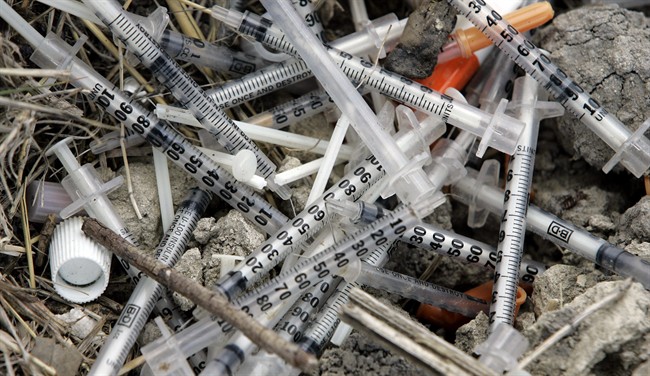Two prisons in Canada will be trialing a new prison needle-exchange program aimed at lowering the risk of spreading disease associated with drug use, according to Correctional Services Canada (CSC) and Public Safety Minister Ralph Goodale.

The first phase of the program at one women’s prison and one men’s prison, will start in June, officials said on May 14 in a release. The union of correctional officers said the prisons were located in New Brunswick and Ontario.
Officials from CSC say they know there’s a “prevalence of substance use problems” among inmates.
They say the program is based on “harm reduction” and is hoping to “facilitate referral” of prisoners to addiction and health-care services for inmates. These types of programs are recommended by the United Nations Office on Drugs and Crime.
HIV and AIDS activists lauded the program, saying it’s something they’ve asked for over 20 years.
“Canada must act quickly to implement this program in all prisons.”

Get weekly health news
According to statistics from the federal government, the rate of HIV and HCV (Hepatitis C virus) in prisons is 1.2 per cent and 7.8 per cent, respectively. Compare that to the general public, where 0.006 per cent of the public has HIV and another 0.03 per cent have HCV.
“We’re focused on ensuring that correctional institutions are secure environments conducive to inmate rehabilitation, staff safety and the protection of the public,” Goodale said in a release.
Others weren’t so welcoming; the union for correctional officers said its members haven’t received additional training or safety measures.
On that note, a spokesperson for Goodale said needle-exchange programs in other countries haven’t increased attacks on prison staff, and in fact contributes to workplace safety.
Public Safety Ministry spokesperson Scott Bardsley also said guards involved in the program will be enrolled in “information sessions.”
Union president Jason Godin said the role of the correctional system is to reduce drug use.
“This program represents a dangerous turning point. Correctional Service Canada has decided to close its eyes to drug trafficking in our institutions,” union Godin wrote in a release.
But the government says having drugs in prisons is a fact of life, and the program is designed to help addicted inmates.

“While CSC has measures in place to prevent drugs from entering institutions, it recognizes that drugs on occasion will make their way into its penitentiaries. Recognizing this reality, it has a responsibility to safeguard the well-being of those under its care,” Bardsley wrote in an email.
Another concern of the union’s? Threat assessment.
“What will correctional officers be called upon to do when an inmate is about to inject themselves with a needle provided by CSC? Watch them do it or enter the cell to prevent it from happening?” Godin asked.
Officials from CSC say the Threat Risk Assessment model, currently used for prisoners with EpiPens and diabetic insulin, can be modified for the needle-exchange program.
- Vancouver airport ties Nexus outage to U.S. partial government shutdown
- As Carney heads to India, Canada seeks to revoke citizenship of 2008 Mumbai attack ‘mastermind’
- What’s a Canadian firm under defence industrial strategy? It’s complicated
- Federal government raises concerns over OpenAI safety measures after B.C. tragedy













Comments
Want to discuss? Please read our Commenting Policy first.